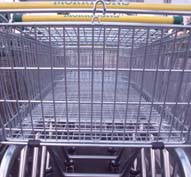You might think that a security officer in a shop, or a non-security member of staff whose job it may be to face someone doing a crime or being anti-social, will merit more attention from the police, given that responsibility, than a member of the public. The opposite may be the case – they might be regarded by police as less of a cause for response. That came out in questioning of senior police by MPs in the all-party Home Affairs Select Committee, during their inquiry into violence against retail.
In an earlier morning of questioning, MPs heard from retailers, including the security and incident manager for Boots’ 2500 stores, Iona Blake; and retail bodies such as the Usdaw trade union, the British Retail Consortium and the Association of Convenience Stores, whose annual crime survey was featured in the May print edition of Professional Security magazine.
Armed with what they heard from retailers – of an inconsistent or entirely lacking police response to violent crime – the MPs put some informed questions to police such as Ian Dyson, the City of London Police Commissioner who is the national policing lead on crime against business.
Ian Dyson told the MPs how most police forces adopt the THRIVE model of assessment. “Any call coming in, whether it is about violence or any other request for police assistance, will be assessed against THRIVE. THRIVE stands for threat, harm, risk, investigation opportunities, victim vulnerability and the engagement level required to resolve it. What I mean by that is there are a number of incidents where there may not need to be a police attendance. All forces adopt some form of assessment; that is a popular model. It is assessed and inspected as part of the HMICFRS [official police inspectorate] inspection process to see that forces are adopting those risk assessment models to determine prioritisation.”
Laura Farris, the Conservative MP for Newbury as a member of the committee asked: “On victim vulnerability, do you think there is a perception that a retail worker who is in a big store, where there might be a security guard, a line manager and other members of the team on site, would be categorised in a lower level of vulnerability according to the police matrix than if they were a person on the street?”
Ian Dyson began his reply: “To be candid, yes, there is a possibility that that is the case.”
MPs finished their session with retail by asking if they thought the problem of violence and abuse against retail would get worse or better in the next 12 months. All those in retail answered that it would get worse, or at best no worse if enough was invested. By contrast, all the police when asked by MPs said it would get better: Ian Dyson; Gwent deputy chief constable Amanda Blakeman (‘We are on a very clear path towards understanding these issues and putting prevention in place, so I think it will get better’), the national police lead on acquisitive crime; and Insp Patrick Holdaway, in charge of the National Business Crime Centre (NBCC) which seeks to coordinate and create links between police and business to better tackle crime against business.
The committee chair, the senior Labour MP Yvette Cooper closed the session by telling the departing police pointedly, ‘while I think everybody would welcome all the work that you are all putting into this, there is a very big gap between what you are saying about what is happening and the trajectory and what the retailers are saying. They will be aware of all of this work, but the retailers and the shop workers are saying something very different and they clearly want much greater urgency and much stronger action to happen much more swiftly.’
You can read the evidence on the Parliament website.
In earlier evidence, the MPs have heard about retail calls for a law to make an assault against a retail worker an aggravating factor; such a law recently came in, by the Holyrood Parliament, covering Scotland. Ian Dyson towards the end of the evidence session queried such a law, asking ‘does it lead to requests from other sectors that may be equally subject to violence or the threat of violence also wanting legislation’.
More on the MPs’ inquiry in the June print edition of Professional Security magazine.









